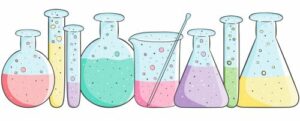
We know spreading kindness is a good thing but who knew it is actually scientifically good for you? Acts of kindness release oxytocin which help with lowering blood pressure and improving heart health. Oxytocin also helps with increasing self esteem which makes you more confident, especially in social settings. It is also shown to increase your energy levels and make you more calm.
Giving
Statistics show that happiness levels in people increased after participating in giving. Not just actions toward people, but also giving monetarily has an effect on people. Christine Carter writes that “People 55 and older who volunteer for two or more organizations have an impressive 44% lower likelihood of dying early, and that’s after sifting out every other contributing factor, including physical health, exercise, gender, habits like smoking, marital status and many more.” This statistic can be very shocking that something as simple as being kind can improve your overall health. It also doesn’t hurt that it gives you a “helper’s high” after you do something kind for someone.
Chemically
Even aside from the way it makes you feel, there is something that changes in you chemically as well. The pleasure and reward area of your brain lights up almost as if you were the recipient of something good, not just the doer of something good. Serotonin, a feel good chemical most commonly known as the happy chemical, is stimulated when performing kind acts. It also makes your brain produce endorphins which are natural painkillers, talk about a bonus! Serotonin also decreases anxiety and depression and even lowers blood pressure. This continues to add to the list of why you should be kind.
Kindness is contagious and makes others motivated to “pay it forward.” Who doesn’t want to start a chain reaction of kind acts!? Also, kindness is teachable – so no excuses people, let’s learn to flex our compassion muscles and respond with care for others!
My inspiration/source for this article and for more info: click here 🙂
